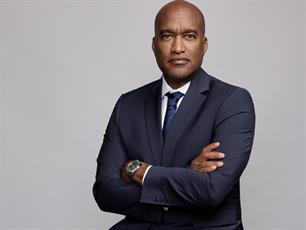Paul Holmes 11 Nov 2013 // 8:27PM GMT
MIAMI—The majority of independent PR firm owners would much rather sell to another independent firm than to one of the publicly-held international agencies, according to a survey conducted by The Holmes Report and New York-based law firm Davis & Gilbert, which formed the basis of a discussion at the Independent Public Relations Firms’ Forum—part of the Global Public Relations Summit in Miami.
The survey, presented by Davis & Gilbert’s Michael Lasky, found that two-thirds of the respondents—more than 120 PR firms from around the world—had no succession plan, and that while most (86 percent) had been approached about selling their firms, only 10 percent expect to sell in the next year and only about 20 percent expect to sell in the next three years.
At the same time, 83 percent of respondents had considered acquiring another firm, but only 30 percent had seen a deal come to fruition. Deals fell apart because of client conflicts, the sheet complexity of getting a deal done, and because the agency principals found it difficult to devote enough time to make a deal happen.
Panelists discussing M&A for independent PR firms made it clear why that might be true. Scott Allison of Allison+Partners, which has made six domestic and international acquisitions, and also sold a piece of its business to holding company MDC, says that one of his partners devotes 90 percent of his time to M&A.
“We want to make sure that the firm is going to fit in with our culture,” says Allison. “We want to make sure that one and one is really going to add up to three. We have done six deals, but we have probably had conversations with 200 firms.”
But it is clear that some independent PR firms are making the effort required, for a variety of reasons. Allison says his firm initially saw acquisitions as a way of adding critical mass: “We wanted to get to $10 million as quickly as possible.”
Other panelists had other motivations. Helen Thomas, who heads the US operations of Chinese PR giant Blue Focus, cites talent acquisition as the key issue; Peter Finn of Finn Partners is focused on building market share in markets where the firm has a presence and is looking for growth; Ed Moed of New York’s Peppercomm, meanwhile, wanted to expand the firm’s offer to include creative services, digital services, and more.
The key to success, according to Thomas, is networking. “It’s about meeting the people and getting to know the people. Every PR brand has a personality and it’s important to meet the principals and the owners. I spend a lot of time getting to know these people.”
Finn, suggests three elements of networking: “We study the rankings lists, to find firms and figure out how big they are and when they are located. We work with deal brokers; deal brokers are your friend. And we network, we come to events like this.”
As to the preference for selling to other independents, that has created more opportunities for both buyers and sellers.
“I have spoken to owners who say they will never sell to a holding company, that a holding company would destroy their business,” says Finn. “When he deals with me, he knows who he is selling to. We still have to do a lot of work to make sure we are comfortable with the cultural fit, to make sure the terms are right, but our independence is an advantage.”
Moed agrees, suggesting that independents have more flexibility in terms of the way deals are structured. Peppercomm, for example, believes that the whole agency should be part of a single P&L, so that the traditional earn-out structures don’t work.
“Not everyone wants to work for a holding company,” says Thomas. “It’s up to you [the independent firm] to find the right fit for you.”


































.jpg)






.tmb-135x100.png)










